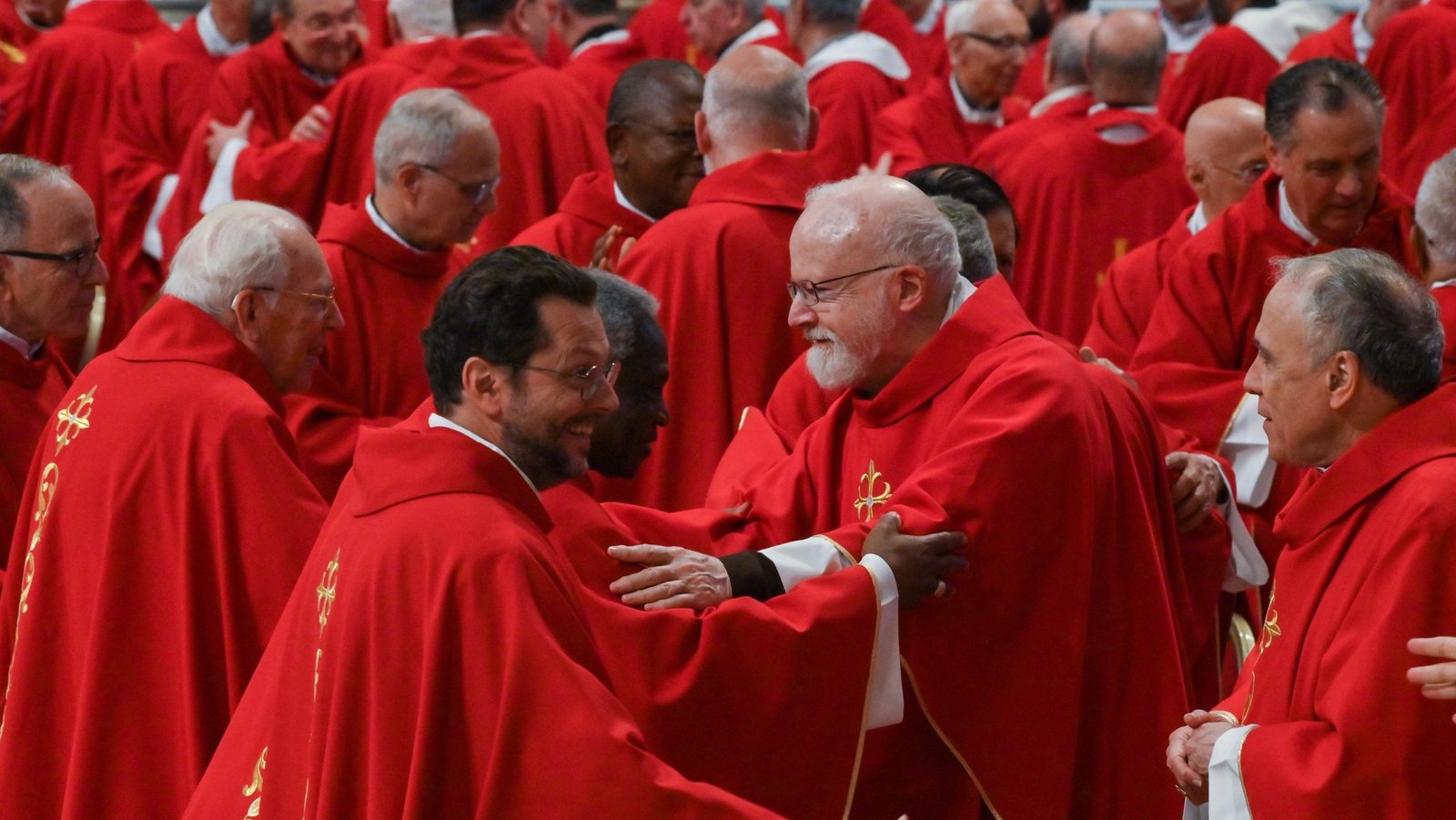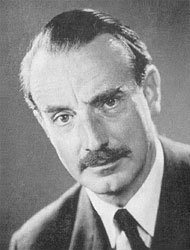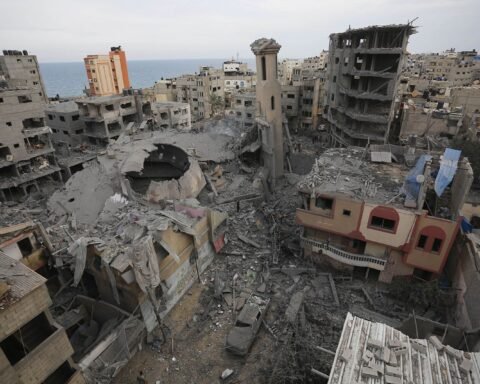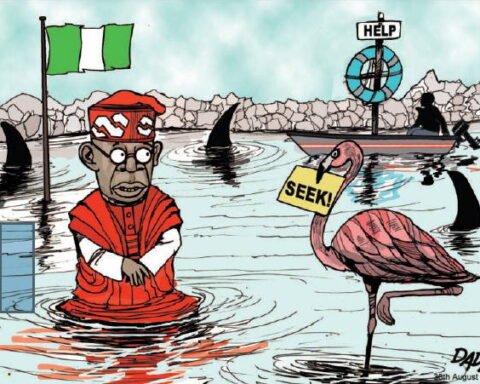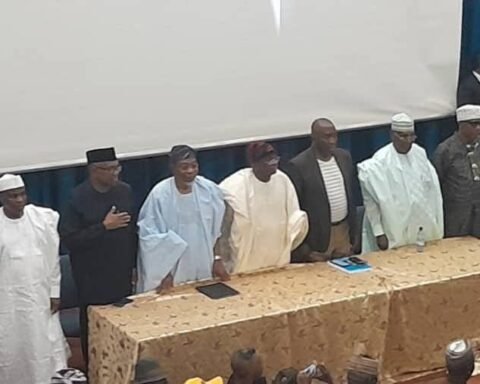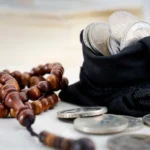By Emmanuel Gandu
HIGHLIGHTS
• Focus
• Elections : a global historical journey
• Imperative of open, free, and credible elections
• The Conclave
• Two thoussnd years of history of church elections
• Electing a new pope
•. Other facts
• Biblical references to conclave
• Use of money to buy votes in Nigeria’s election system : 2023 elections as a case study.
THE FOCUS
This discourse is an attempt to highlight the significance of the conclave process of the Catholic church, emphasize its connection to clean, transparent, time tested procedure, biblical traditions, and guidance in papal electoral processes. To achieve this, the discourse exrays, with examples, the corrupt and flowed Nigeria’s election processes by comparing the two systems. It is hoped that Nigeria will appreciate the implications and draw lessons in order to chart a better path for for good conduct future elections in the country.
ELECTIONS : A GLOBAL HISTORICAL JOURNEY
While the process of electing a pope is explicitly set out in the rules and guidelines of this centuries old conclave Catholic tradition, Nigeria’s electoral system is guided by the Electoral Act of the Independent National Electoral Commission (INEC), and as encapsulated in the relevant sections of the 1999 Constitution of the Federal Republic of Nigeria as amended.
The Encyclopaedia Britanica defines election as the formal process of selecting a person for public office or of accepting or rejecting a position of responsibility by voting. In some cases elections may be free and fair when votes are present with genuine choices between alternatives. In other circumstances, voters do not have a control of the electoral processes where the situations are highly compromised.
Although elections were used in Ancient Athens, in Rome, and in the selection of Popes and Roman Emperors, the origins of elections in the contemporary world lie in the gradual emergence of representative government in Europe and North America beginning in the 17th Century.
During the 18th Century, access to the political arena depended largely on membership in an aristocracy, and participation in elections was regulated mainly by local customs and arrangements. Although both the American and French revolution declared every citizen formally equal to every other, the vote remained an instrument of political power possessed by the very few and high in the society. Until the ‘Voting Rights Act of 1965′ in the United States, legal barriers and intimidation effectively barred most African Americans from being able to cast ballots in elections.
By the 19th and 20th Centuries, the increased use of competitive mass elections in Western Europe had the purpose and effect of institutionalizing the diversity that had existed in the countries of that region.
In sub – Saharan Africa, competitive elections were introduced in three distinct periods. In the 1950’s, and 1960’s a number of countries held elections following decolonization.
In the late 1970’s, elections were introduced in a smaller number of coumtries when some military dictators were dissolved eg, in Ghana and Nigeria, and other countries in Southern Africa like Angola, Mozambique, and Zimbabue.
IMPERATIVE OF OPEN, FREE, CREDIBLE, AND FAIR ELECTIONS
Elections whether in civil or religious climes makes a fundamental contribution to democratic governance where religious, civic, or political decisions are made by the entire body of citizens.
In order to avoid the electoral processes from being impractible, democratic institutions must be conducted through fair-minded representatives.
While democratic elections enable voters to select leaders and hold them accountable for their performance in office, this act of accountability can be undermined when elected leaders do not care whether they are reelected or when, for reasons, some party or coalition may be so dominant that there is effectively no choice for voters among alternative candidates, parties, or policies.
Interestingly, while election serve a self actualizing purpose by confirming the work and dignity of individual citizens as human beings, participation in the election serves to reinforce their self-esteem and self-respect.
Voting gives people an opportunity to have their say through expressing partisanship, and to satisfy their need to feel a sense of belonging.
For precisely these reasons, the long battle for the right to vote, the provision of a level playing ground, the absence of corruption tendencies in the process, absence of rigging and thuggery, adherence to the rules and guidelines of the elections, and the demand for equality and equity in electoral participation.
Therefore, these should be viewed and implemented unequivocally not only as a profound human craving for personal fulfilment, but also as nothing less than being sacrosanct.
THE CONCLAVE
A shepherd of profound faith and humility, the late Pope Francis dedicated his pontificate to enhance mercy, justice, and care of the most vulnerable. He was a moral light in a world darkened by inequality and indeference.
Sadly, but with total submission to the will of God, Pope Francis passed on to glory. It was on Easter Monday 21st. April 2025. It is hoped that Francis’ legacies will continue to inspire generations to come.
From 7th May 2025 a total of 133 Cardinals under the age of 80 years from 70 countries of the continents of the world gathered in Rome in a conclave for the election of a successor to Pope Francis.
We did not know who was to be elected in that conclave but we had a good idea of what was to happen – a man close to God’s heart was going to emerge. Robert Cardinal Francis prevost emerged as the 267th Pope of the world’s 1.4 billion Catholics. He took the name Pope Leo XIV.
TWO THOUSAND YEARS HISTORY OF ELECTIONS IN THE CHUR : FACTS OF CONCLAVE
Conclave is a gathering of cardinals at the Vatican to elect a Pope, the Bishop of Rome, the apostolic successor of Saint Peter and the Vicar of Christ on earth.
As the early Christian communities emerged, and since the Apostolic Age, the Pope has been chosen by a consensus of the clergy and laity with the assistance of bishops. This subsisted until in 1059 when a body of electors known as College of Cardinals was created. It was more precisely defined, as this college of cardinals was designated the sole body of electors.
As time went by, concerns around political interference led to to reforms in the election processes after the interregnum of 1268 – 1271. This led to Pope Gregory X’s decree during the Second Council of Lyons in 1274 which stipulated that the Cardinal electors should be locked in seclusion and not permitted to leave until a new Pope had been elected.
Through much of the Middle Ages and Renaissance, the Catholic church had only a small number of cardinals at any given time, sometimes as few as seven (7), especially under Pope Alexander IV (1254 – 1261), and Pope John XXI (1276 – 1277). The difficulty of travel further reduced the number arriving at conclaves.
Until 1899, (as already highlighted) it was a regular practice to generally include a few lay members in the Sacred College of Cardinals. These were often prominent men of nobility or monks who were not priests, and in all casses, celibacy was required.
In 1917 the Code of Canon Law promulgated that year explicitly stated that all cardinals must be priests.
Since 1962, all cardinals have been bishops with the exception of a very few.
Since then, other amendments/details of the process have been developed.
In 1970 Pope Paul VI limited the electors to cardinals under 80 years of age. The current procedures established by John Paul II were slightly amended in 2007.
By 2013 Pope Benedict XVI also made some few amendments. The two – thirds majority vote is required to elect a Pope.
CONCLAVE: ELECTING A NEW POPE
A conclave is a sacred gathering of cardinals of the Catholic Church to elect a new Pope. This process is steeped in tradition and has been used for centuries.
The conclave process originated in the 13th century, with the term “conclave” coming from the Latin “cum clavis,” meaning “with a key.” This refers to the practice of locking the cardinals in a secure location, isolated from the outside world, to ensure a free and unbiased election.
During a conclave, the cardinals:
1. Take oaths of secrecy and impartiality
2. Participate in prayers, reflections, and discussions
3. Vote in a series of ballots until a candidate receives the required two-thirds majority
Only cardinals under the age of 80 are eligible to participate in a conclave. These cardinals are known as cardinal electors.
The conclave procedure involves:
1. Pre-conclave preparations, including the Sistine Chapel’s preparation
2. Cardinals’ oaths and initial prayers
3. Balloting, with each cardinal writing their chosen candidate’s name on a ballot paper
4. Ballots are burned, producing black smoke if no candidate reaches the required majority or white smoke if a new Pope is elected
The cardinal who receives the required two-thirds majority becomes the new Pope. Upon acceptance, they choose a papal name and are formally inaugurated as the Bishop of Rome.
The conclave process ensures the continuity of the papacy, allowing the Catholic Church to select a new spiritual leader while maintaining its traditions and integrity.
A FEW OTHER FACTS
(1) The longest Papal Conclave lasted nearly three (3) years – from November 1268 – September 1271. This was due to political disagreements between the cardinals.
(2) No Italian has been elected pope in the past 47 years.
(3) The past three popes –
(a) Pope John Paul II was elected on the third day of voting.
(b) Benedict XVI on the second day of voting.
(d) Francis on the second day of voting.
(4) Voting can get up to the end of the fourth day. If there is no winner after that, there will be no voting on the fifth day. This is to allow for prayer, quiet reflection and informal discussion before resumption.
(5) For the first time in the history of conlaves, an unprecedented 70 countries from across six continents were represented in the 2025 conclave.
BIBLICAL REFERENCES TO CONCLAVE
The word “Conclave” is not found anywhere in the Bible. However, if conclave is the act of electing a leader of the church of God, it follows therefore that “Conclave” is well expressed in the spirit of the scriptures.
Just like in our time, when a pope dies or resigns, or incapacitated, a new one must be elected. This practice isn’t something new, it has been part of the Church from the very beginning :
(1) Jesus prepares Peter for leadership of the church : “Jesus said to Simon Peter, do you love me more than these others do? “Yes Lord ..you know I do. Jesus said to him, take care of my Lamb.”
Jesus a second time said, “take care of my sheep.” Jesus a third time said, “take care of my sheep.”
John 21 : 15 – 19
(2) Jesus chose Peter as the leader of the church on earth :
“And so I tell you, Peter: you are a rock, and on this rock foundation I will build my church…… I will give you the keys of the Kingdom of heaven…….”
Matthew 16 : 18 – 19
(3) In Acts 1:15, when Judas Iscariot d!ed and left a gap among the apostles, Peter stood up among the believers and said it was important to fill that office. “Brethren, the Scripture had to be fulfilled…” he said. Similarly, today, when the papacy is vacant, the Dean of the College of Cardinals, acting in the spirit of Peter, leads the Church in beginning the election process.
(4) In Acts 1:20, Peter said, “Let another take his office.” This was not just a suggestion, but a command from God. When the Church loses a leader, the faithful cannot be left without guidance. So, when the papacy is vacant, a new pope must be chosen. This is the reason for the “sede vacante”, the period when the papacy is vacant, and the Church prepares to elect a new pope.
(5) Peter also showed in Acts 1:21-22 the qualities needed for the new apostle: the person must have followed Christ, witnessed His resurrection, and remained faithful. Similarly, today, the new pope is chosen from among the College of Cardinals, men who have devoted their lives to service, faith, and loyalty to Christ’s Church.
(6) In Acts 1:24, the apostles prayed, “You, Lord, who know the hearts of all, show which one of these two you have chosen.” Just as they prayed for God’s guidance, the cardinals today also pray for the Holy Spirit’s help before casting their votes. The election isn’t about who is popular or powerful, it’s about seeking God’s will. The cardinals’ prayer is simple: “Lord, show us whom You have chosen.”
(7) In Acts 1:26, the apostles cast lots, and Matthias was chosen. Today, we don’t cast lots, but the idea is the same. The cardinals vote in secret, but they do so with the same spirit of prayer, humility, and trust in God’s will.
(8) While in Acts 1, Peter was still alive and led the apostles, today, when the pope is no longer with us, the Dean of the College of Cardinals takes the same role that Peter did. The dean helps guide the Church and leads the election, speaking in the spirit of Peter, until a new pope is chosen.
(9) Back then, there were 12 apostles, representing the 12 tribes of Israel a symbol of completeness and divine order. Today, the College of Cardinals is made up of cardinals from all over the world, from many different countries. In this way, the Church is still complete, just on a much larger, global scale. What started then has spread to the entire world, and the same principles of faith and order remain.
(10) So, when the cardinals gather in the Sistine Chapel, when the ballots are cast, and when white smoke rises from the Vatican, declaring “Habemus Papam!”, remember: this is not just a ceremony, but a living connection to the teachings of the Bible. The tradition of choosing a pope is as old as the Church itself.
(11) The Catholic Church remains faithful to Christ’s plan, just as it has been from the beginning.
THE USE OF MONEY IN NIGERIA’S ELECTION SYSTEM : THE 2023 ELECTION AS A CASE STUDY
The use of money to buy votes in the conduct of Nigeria’s elections by both the political parties and the aspirants is becoming so alarming, unbearable, unethical, that the system throws up the ticket for the highest bidder. This leaves much to be desired.
As at Friday May 6th 2022, The APC recorded the following revenue from the proceeds of sales of forms/tickets to candidates seeking interest to contest the various positions :
1. 241 aspirants picked senatorial forms sold for twenty million Naira per form. ie 20m x 241 = N4,820,000,000 ( that is over 4.8 billion naira).
2. 821 aspirants Picked forms/tickets for House of Representatives sold for 10m per form. A total of N8,210,000,000 was realised. ( that is over 8 billion naira).
3. 1,505 aspirants Picked States House of Assembly forms/tickets sold at 2m per form. 3,010,000,000 was realised from the sales (that is over 3 billion naira).
4. 48 aspirants Picked Governorship forms/tickets sold at 50m per form. 2,400,000,000 was realised from the sales. ( that is over 2 billion naira).
5. 25 aspirants Picked Presidential forms/tickets sold at 100m Naira per form. A totak of 2,300,000,000 billion naira was realised.
A total of 20,740,000,000 Naira was realised (20.7 billion + approx)*
*IMPORTANT POINTS TO NOTE.*
1. These payments came from less than 3,000 Nigerians into the coffers of APC
2. Over 95 % of these 3,000 aspirants are people who have been around the corridor of power.
To put it in another way, this money moved from Nigeria public fund, into private pockets and then into APC coffers.
3. This money gives APC the power to dominate and influence the 2023 elections as they chose.
4. It is the masses of Nigeria and the opportunity for development that will pay back with multiple interests all these monies flowing to the politicians.
5. Universities are suffering from poor funding.
6. Insurgency, Kidnapping, killings, hunger, unemployment are on the rise.
Follow us on all social media platforms @dailyquery for news around the globe.
